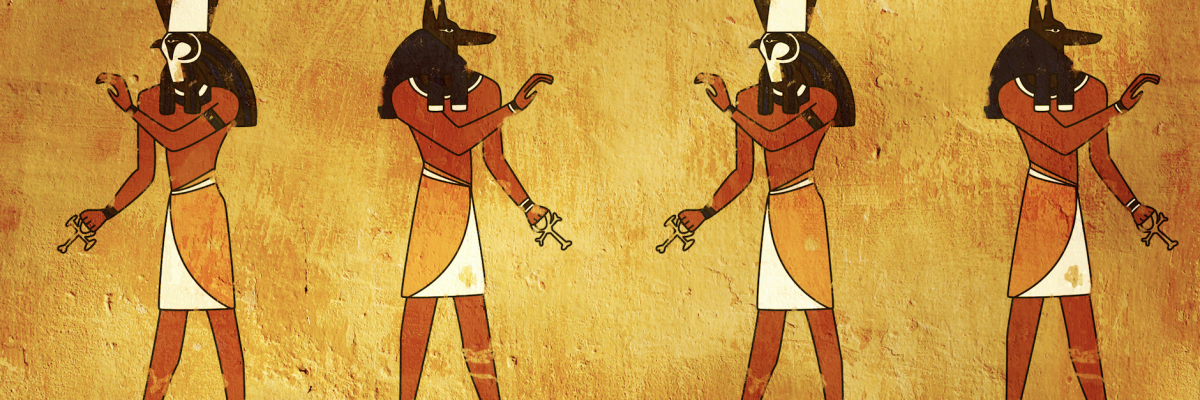
Skeptics will argue that Jesus’ resurrection is just one more instance of the dying-and-rising-god motif prevalent in the religions of the ancient Near East. The Scottish social anthropologist James Frazer popularized this motif in his 1890 book The Golden Bough: A Study in Comparative Religion. The idea continued in modern skeptic circles, as the popular film Zeitgeist has shown.
Skeptics like to parallel Jesus’ resurrection with pagan deities such as the Egyptian gods Osiris and Horus, as well as the Greek gods Attis and Adonis. But are these parallels accurate? Do these claims undermine the Christian story of Jesus’ resurrection, making our Christian faith in vain? Here are four responses.
Response 1: The objection disregards the evidence that supports the historical reliability of the Gospel accounts of Jesus’ resurrection.
Multiple eyewitnesses and close associates of eyewitnesses report Jesus’ resurrection (e.g., Matthew, Mark, Luke, John, Paul, James, Peter, the women, Clement of Rome, and Polycarp). Paul’s creedal formula—“Christ died . . . was buried . . . and rose on the third day” (1 Cor. 15:3-5)—dates to within six years of Jesus’ death and resurrection, thus satisfying the early testimony criterion. Paul maintains that this saying was a part of the apostolic preaching (1 Cor. 15:11), and therefore it is probable that he received it in A.D. 36, when he visited Peter and James in Jerusalem three years after his conversion in A.D. 33 (Gal. 1:18-19). If he received it at that time, then that means the saying must have been formulated prior to that, thus dating it to within five years after Jesus’ death (A.D. 30).
The historicity of Jesus’ resurrection also stands out when one considers how the alternative naturalistic explanations (e.g., Conspiracy Theory, Hallucination Theory, Legend Theory, etc.) fail in accounting for the historical details that make up the resurrection narratives. For the pagan dying-and-rising-god motif to be a plausible explanation, a skeptic would have to undermine the historicity of the details in the resurrection narratives—a project that will not succeed in the face of all the evidence to the contrary.
Response 2: Pagans generally didn’t believe in resurrection.
In her essay “Does the Story of Jesus Mimic Pagan Mystery Stories?”, Christian apologist Mary Jo Sharp writes, “In the ancient pagan world, death was a one-way street” (Come Let Us Reason). St. Athanasius (296-373) points this out in his work On the Incarnation:
For although the Greeks have told all manner of false tales, yet they were not able to feign a resurrection of their idols— for it never crossed their mind, whether it be at all possible for the body again to exist after death.
This is confirmed in Acts 17, when the Athenians mock Paul for his preaching about Christ’s resurrection (32). Greek literature even contains passages mocking the idea of bringing someone back from the dead. In the Iliad, after Achilles kills Priam’s son Hector, Achilles taunts the grief-stricken father, saying Priam won’t be able to bring his son back.
How could the early Christians have copied from Greek mythology when the Greek worldview was hostile to the Christian idea of a bodily resurrection?
A skeptic may answer, “Perhaps resurrection was foreign to the Greeks, but not to the Egyptians. Both Osiris and Horus died and rose again. Maybe the Christians copied from Egyptian mythology.” This leads us to our third response.
Response 3: Parallels between the story of the rising Jesus and the stories of rising pagan deities are false.
Take as an example the most common alleged parallel: the Egyptian god Osiris. Scholars are quick to point out that in Egyptian mythology, Osiris never really rose from the dead; he reigned as king of the underworld. As the Egyptologist Henri Frankfort explains in his book Kingship and the Gods, “Osiris . . . was not a dying god at all but a dead god. He never returned among the living.”
This is why the Book of the Dead has a prayer the Egyptian believer prayed to Osiris requesting a permanent place in the afterlife: “Grant thou [Osiris] to me a place in the nether-world, near the lords of right and truth, my estate may it be permanent in Sekhet-hetep.”
How can there be a parallel between Jesus and Osiris’s experience of life after death if Osiris never came back to this life?
The Egyptian god Horus is said to have been stung by a scorpion and then revived by his mother Isis after she performed magical spells given to her by the god Thoth. But it is disputed as to whether the mythology says Horus actually died.
If he didn’t die and only became ill, then obviously there is no parallel with Jesus. But if he did die, then the death and raising of Horus would still be very different in every other detail from the death and resurrection of Jesus.
Since the suggested parallels are so weak, there is no reason to think the early Christians borrowed the Egyptian dying-and-rising deities to construct their story about Jesus.
The same applies to parallels proposed outside Egyptian mythology. For example, after dying, the spirit of the Phrygian vegetation god Attis entered a pine tree. That’s hardly a bodily resurrection.
Response 4: Christians had no need to borrow the concept of resurrection from paganism since they already had it in Judaism.
Unlike pagans, first-century Jews generally believed in a resurrection—the Sadducees being an exception (Acts 23:8). Martha reassures Jesus of her belief that her brother Lazarus will “rise again in the resurrection at the last day” (John 11:24). This is no surprise, given that the Jewish prophets foretold it (Isa. 26:19; Dan. 12:2), and her Jewish ancestors believed it (2 Macc. 7:23).
If the Jews believed in the concept of resurrection, then Christians would not have needed to go outside their Jewish culture to borrow the concept of resurrection when such a concept was already a part of it. The appeal to an outside source would be unnecessary.
The question is not “where did the early Christians get the idea of a resurrection?” Rather, given their Jewish culture, the question is “where did they get the idea of someone rising before the general resurrection at the end of time?” We should also ask why the early Christians believed in a resurrected Messiah. As N.T. Wright explains in his book The Resurrection of the Son of God, these beliefs were not part of Jewish theology in the first century. The only adequate explanation of these facts is Jesus’ resurrection.
Christianity is not a copycat religion. The “dying and rising god” objection doesn’t discredit the Gospel accounts of Jesus’ resurrection. Although, by itself, this doesn’t show that Jesus was raised, it does show that Christianity’s central claim is not taken from pagan myth.



